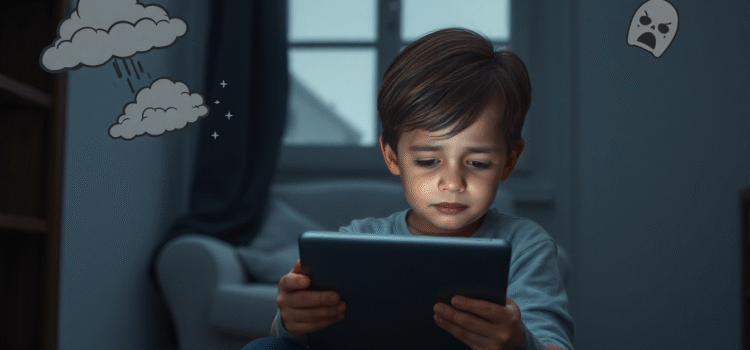
Excessive Screen Time Linked to Aggression, Anxiety, and Low Self-Esteem in Children
Introduction
In an era where digital screens are omnipresent, concerns about the psychological impact of screen exposure on children are growing. A recent comprehensive study has revealed troubling connections between excessive screen time and children’s mental health issues. The findings indicate that children who engage with screens for more than four hours daily exhibit a significant increase in aggressive behavior, heightened anxiety levels, and a notable decline in self-esteem. This blog post delves deeply into these findings, offering insights and guidance on managing children’s screen time effectively.
Screen Time and Child Behavior: Understanding the Study Findings
The recent study highlights a worrying connection between extended screen exposure and behavioral changes in children. Notably, there is a 15% increase in aggressive behaviors among children exposed to more than four hours of screen time compared to their peers. This section provides an overview of how extended screen time might contribute to such behavioral changes.
Screen Time Anxiety in Children: Exploring the Emotional Toll
The link between screens and heightened anxiety levels in children cannot be overlooked. The study reports a 20% increase in anxiety symptoms, suggesting that prolonged exposure to digital media can exacerbate stress. This section delves into why screens might be an anxiety trigger and what that means for children’s mental health.
Caption: Excessive screen exposure can impact emotional health.
Low Self-Esteem Screen Time: Assessing the Impact
In addition to aggression and anxiety, the study highlights a worrying 25% decline in self-esteem among children with high screen time. This section examines how excessive reliance on screens can erode self-worth and confidence in young individuals.
Reducing Screen Time in Children: Practical Guidelines
- Establish clear screen time limits and stick to them consistently.
- Encourage outdoor activities and hobbies that do not involve screens.
- Foster face-to-face interactions to improve social skills and emotional health.
- Monitor content consumed by children to ensure it is age-appropriate.
- Lead by example with balanced screen time usage as a role model.
Conclusion
This study underscores the pressing need for parents to oversee and limit their children’s screen time. By doing so, we can aim to reduce the risk of aggression, anxiety, and low self-esteem in children. Stakeholders, including educators and policymakers, must also engage in dialogue to address this growing concern. Readers are encouraged to share their thoughts and strategies in managing screen time effectively in the comments section below.
Sources
Please find the URLs of the primary articles and websites used for this post:
FAQ
What are the excessive screen time effects on children?
Excessive screen time can lead to increased aggression, anxiety, and low self-esteem among children.
How does children’s screen time impact mental health?
Prolonged screen time is linked to behavioral changes, including heightened anxiety and decreased self-worth.
Is there aggression linked to screen overuse?
Yes, studies have shown a substantial rise in aggressive behavior among children exposed to prolonged screen time.
Do kids’ screen time and anxiety levels correlate?
There is a positive correlation, with increased screen time contributing to higher anxiety levels in children.
How can low self-esteem from digital media use be addressed?
Encouraging balanced screen time and promoting offline activities can help mitigate feelings of low self-esteem stemming from digital media use.







